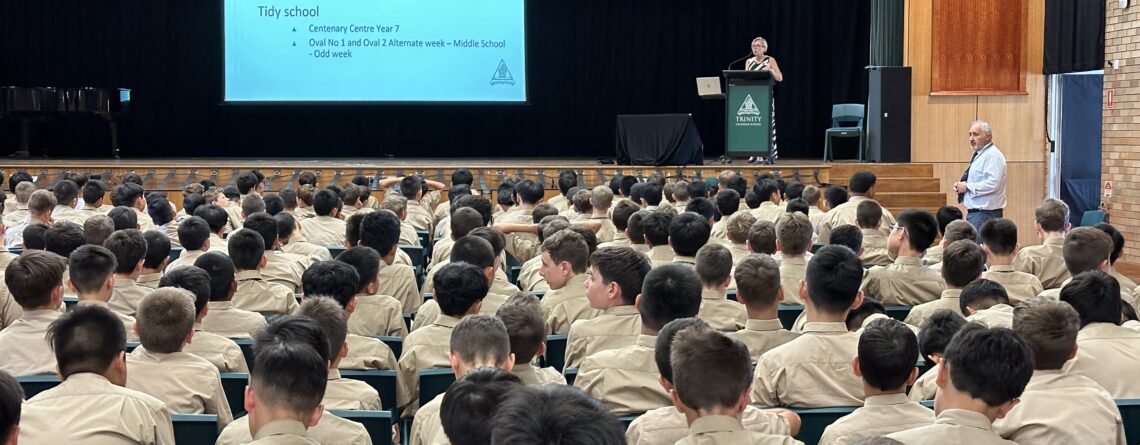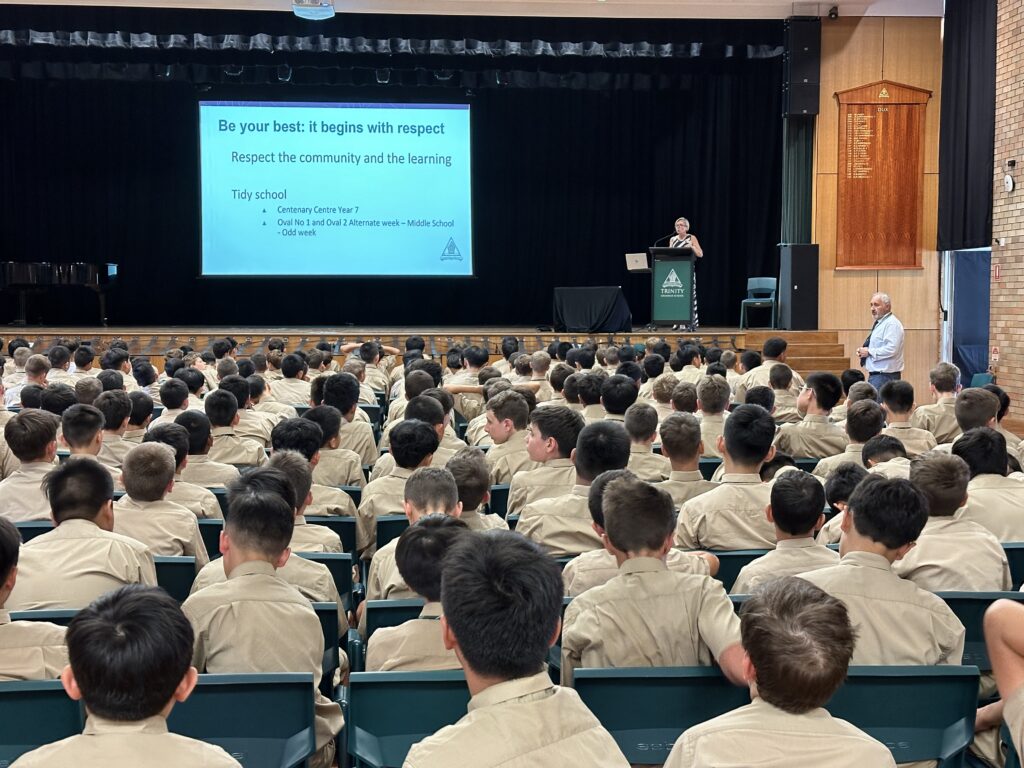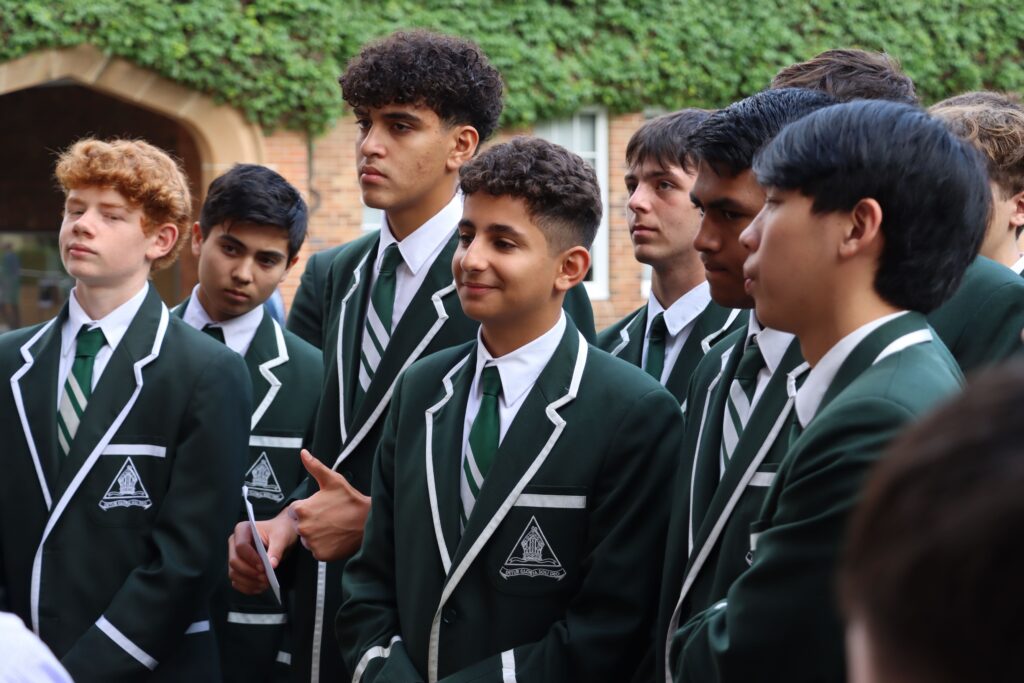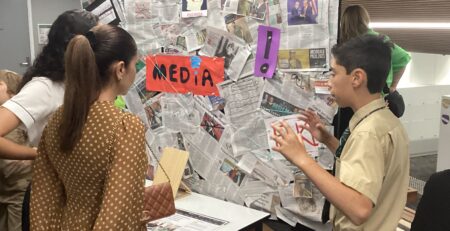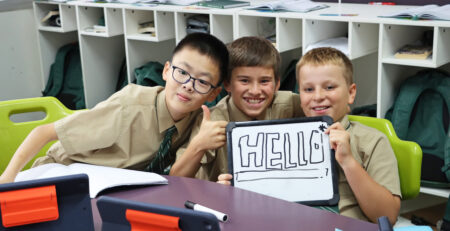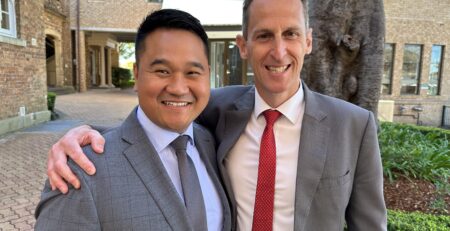The power of respect in learning communities
Heading back into a new School year, Trinity students have been encouraged to prioritise respect at every step of their learning journey.
Respect means treating something as if it matters; in the context of learning at Trinity, it is about respect for each other, respect for the environment, and respect for the learning that will take place.
The theme of respect in learning is perhaps best captured in Trinity’s approach to academic engagement. At Trinity, we define academic success in terms of personal academic growth and expect every student to achieve learning growth. Teachers lead respectful learning by understanding each of their students’ personal points of challenge, designing learning that meets students at their point of challenge, and making agile adjustments for support and extension.
Students are encouraged to respect their own learning journey and the, often, very different journeys of their peers, rather than being deceived by the myth that learning is a competitive sport and success is measured against the performance of others.
Each semester, every student’s Learning Progress Report will provide detailed feedback on the way in which they are developing their capacity for deliberate engagement across the range of contexts within Trinity’s learning landscape.
It is timely, at the beginning of the year, to identify the four key engagement behaviours within which students are expected to grow:
- Self-management
- Task management
- Learning focus
- Persistence
Self-management refers to a young person’s capacity to manage emotions (even in disappointment), harness positive attitude and self-regulate in the face of increasing challenges. In Years 7 – 10, students receive feedback on these two behavioural indicators of self-management:
- Shows commitment to personal best
- Shows respect for own and others’ ideas, perspectives and skills
Successful learners participate emotionally in learning experiences, investing enthusiasm and belief in the value of learning. They know that they learn with and from others, developing skills of negotiation, collaboration and shared problem solving. These learners show respect for each other and respect for their own progress.
In Years 11 – 12, we expect our Senior students to practise more sophisticated skills of self-management, indicated by a level of social-emotional regulation that allows them to push beyond distractions and initial confusion towards deep understanding of complex concepts, evidencing initiative and responsibility.
Respecting yourself as a learner, then, means that you are willing to invest in your own learning skills and willing to foster the kinds of dispositions that might not come easily but are worth cultivating. It means treating the learning as if it matters by proactively pursuing it!
While teachers take up much of the responsibility to foster the conditions in which students can develop and practice skills of self-management, families can also take a role in this – Trinity provides several resources for families to use at home.
Ultimately, respect in learning is a lifelong commitment. As long as you are learning in some capacity, it will always be more successful when respect is factored into the experience.
– Mrs Deborah Williams
Deputy Headmaster – Academic

